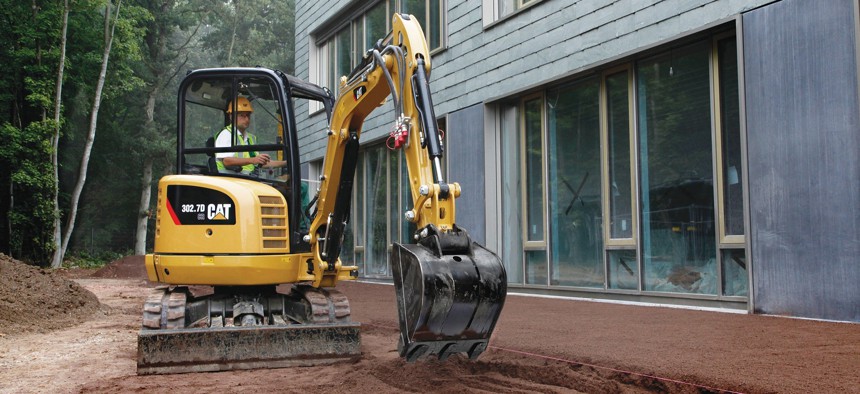Policy
Five Questions for the Common Ground Alliance
With more utilities going underground in Florida, a trade group is trying to teach people: 'Call before you dig.'

Image by Rico S. from Pixabay
You wouldn’t think about a need for an organization of “damage prevention professionals” until learning that “water, power, natural gas, internet, and other buried utility lines (are) damaged through digging by homeowners and contractors 24,000 times each year across Florida.”
Thus the existence of Common Ground Alliance, which bills itself as “the only national non-profit association dedicated to preventing damage to underground infrastructure.” The group will be in Orlando today to hand out accolades to nearly a dozen local elected leaders as part of the inaugural Community Groundbreaker Awards at its 2023 Conference & Expo at the Caribe Royale Resort.
Their goal: Get people to call the national 811 “Call Before You Dig” line. “Contractors, homeowners, business owners and anyone preparing for an excavation project should call 811 at least three business days before digging begins,” a press release explains. “Local utilities will send a crew to mark underground lines in the area (electric, natural gas, water, sewer, phone, cable TV and others) with stakes, flags or paint.”
City & State recently spoke with Sarah Magruder Lyle, the group’s CEO, and John Fluharty, an alliance member and project executive with Quanta Services, the largest utility contractor in the country. Questions and answers have been edited for clarity and brevity.
Why is digging such an infrastructure issue?
Magruder Lyle: As the underground world gets more congested, it becomes increasingly important that we know where critical assets are so that we can protect them when we're putting in additional infrastructure. Common Ground Alliance is made up of 16 stakeholder groups that are involved in the damage prevention industry. We need to increase the visibility of this issue particularly in states like Florida because a lot of infrastructure is being ‘underground’ed there to protect from natural disasters, such as hurricanes, which increases reliability. But if (something) is damaged from a dig, all that work is for naught.
What are examples of significant damages to underground utilities you’re trying to prevent?
Magruder Lyle: Just a few weeks ago there was fiber (optic lines) being installed in Daytona and they hit a water line, causing multiple boil water advisories, which obviously disrupts access to a critical resource. And there was an explosion in Dixon, Illinois that happened on a farm where a farmer hit a gas line and killed him and his son and severely burned two others. This same farmer had called 811 for other work he had done earlier in the year, but this one time he did not. April is National Safe Digging Month, and it's an opportunity for us to really remind contractors, homeowners that they need to call 811 to make sure that they're protecting themselves, their families, their communities, and the utilities that they depend on every day.
What’s your goal to fix the problem?
Fluharty: Our challenge right now is to get all our stakeholder groups to function better and achieve our goal that we've stated as an association, which is a 50% reduction in damages in five years. That's a steep goal, but … we have a good focus and we have the ability to get our government partners, our owners of structures and everyone else focused.
What are some instances where damage is caused?
Magruder Lyle: Especially now that it's spring and it's getting warmer, we have what we call the weekend warriors that are going out to do projects. Homeowners don't call and hitting the cable line is the least of your worries, right? Hit a gas line, that's a big problem. You may have known where it was 20 years ago when you moved into your house or think you did, but calling 811 prior to digging is critically important for homeowners and for us to get that message out. In a more general sense, when we talk about contractors who are digging, they know to call 811, but we have to work more on why they're not when they don't. … There's a lot of money that's going to be pouring into the states from the bipartisan Infrastructure Investment Act that will fund replacement of sewer, water, all kinds of public utilities.
Fluharty: One of the things that is surprising (is) the No. 1 type of equipment that damages underground utilities is an excavator of some type. But the second one is a shovel, a hand shovel.
And when damage occurs, who pays?
Fluharty: I have a little experience in that. What it really comes down to is that the insurance industry pays. So every contractor is insured or the (property) owner is insured. … Let's say I break a gas line. I would be presented as a contractor with a bill and I would then handle that through my insurance. So it's really kind of like a lot of issues we have in Florida right now. Insurance is the big loser holding the cards at the end of the game, I guess you would say.
Magruder Lyle: In the (fiber line) incident the (company) had to do a $15,000 reimbursement for a water main break, and they could be looking at another $75,000 in mitigation costs. So they could be getting a $90,000 bill. Now, the insurance industry is one of the stakeholders, but we represent 16 stakeholder groups, all of them involved in the damage prevention industry from the 811 call centers, the excavators, the locators, the facility owners including fiber, oil, gas, power, water, public utilities emergency services, road builders … That’s why the work we do is so important because everybody agrees on the issues and the challenges and the solutions.